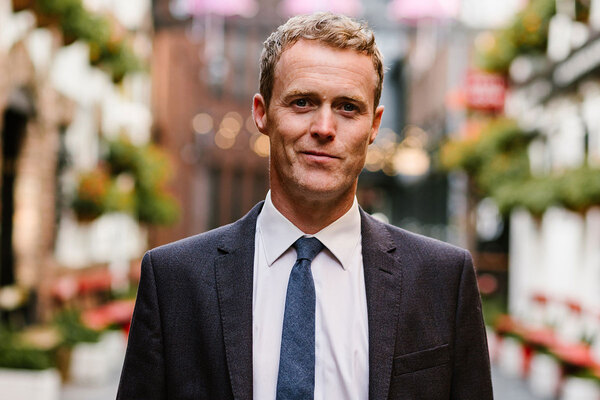Keeping the faith
Excluding religion and spirituality from homelessness services may ignore a crucial aspect of their users’ lives, says Jeremy Swain
Naturally, I never allow my petty prejudices to taint relationships with people - except when I do. Take the other day. I was walking along Peckham High Street when I saw Leonard Taylor approaching me with his familiar, scuttling gait. I was eager to talk to Leonard as I knew he had been housed locally after 17 years of living rough.
The last I’d heard, he was struggling to settle, appearing in his old haunts, hanging around the soup runs, talking nostalgically about his former life of sleeping on cardboard in shop doorways, and deploring the arid existence of the resettled homeless person: housed but friendless.
A change in disposition
Yet the usually dour Leonard responded joyfully when I enquired about his situation.
He explained that some Jehovah’s Witnesses had knocked on his door and, after taking up their offer to attend a service, he had joined the local congregation. Immediately, pejorative verbs started flashing in my mind: brainwash, capture, indoctrinate. ‘Are they being good to you, Len?’ was my downbeat question, rather naïvely exposing my feelings about this turn of events. In response, Leonard explained that he was a very happy man as he had never felt part of a group before - one in which people looked after each other and the fact that he had slept rough didn’t matter. So much better than those day centres for the homeless, he concluded, before turning off sharply towards Lidl.
I reflected on my conversation with Len as I read a new piece of research called Lost and found: faith and spirituality in the lives of homeless people. The author Carwyn Gravell is, like me, an atheist. Central to the research are illuminating interviews with 75 homeless people. His findings make uncomfortable reading for those of us who think services for people with support needs should be ‘user-led’.
Just five of the 75 people interviewed had been given an opportunity to talk to staff about faith or spiritual matters, even though the majority had a desire to do so, reasoning that those areas of their lives validated them as people rather than just ‘service users with problems’.
The damning conclusion of the research is that discussing faith and spirituality is largely regarded as outside the remit of many support workers, even when they are employed by faith-based organisations. These subjects are thought of as dangerously personal and associated with proselytisation. You get the picture: apprehensive support worker begins to feel wobbly as the subject veers towards faith, belief and issues of morality, and desperately seeks to paddle back to the safer conversational waters of resettlement plans and utility bills.
Conflicting demands
Actually, I have enormous sympathy for staff working with people who have support needs. It is not simply a fear of entering uncharted territory that acts as a constraint.
Expectations from commissioners and the organisations they fund can be contradictory. There is a strong drive to ensure that all service users have support plans with achievable outcomes. These should be measurable, so they are usually practical in nature - for example, improving your employability. There are obligations to gauge risk and protect service users. Risk assessments, serious incident reports and safeguarding alerts are now de rigueur.
Concurrently, there is an inexorable - and welcome - move towards greater opportunities for service users to influence support plans and play a greater role in determining their own destinies. Personalisation is leading to individual budgets, which can be used directly by service users.
Sometimes, their selections carry a degree of risk (you want to climb Snowdon, can’t we just go to the park?) but our systems include hazards of their own when they discourage discursive reflection on matters such as faith and the role of religion.
As they struggle with competing demands, it is not surprising that support staff can feel inhibited and discouraged from moving into territory where they can be accused of being unfocused or criticised for increasing levels of risk.
The last word
Wishing to reflect further on the meaning of faith, I sought counsel from Don Rodrigues, a Thames Reach volunteer.
After his marriage broke up, Don spent many months homeless and suffered debilitating depression, triggered by fears of losing contact with his children. On many occasions, he took the night bus to Heathrow Terminal 5 in a desperate attempt to keep warm.
Don spoke with quiet dignity about the three groups of ‘professionals’ that helped him to recover his confidence and self-esteem: the doctors who attended to his mental health, the charity Thames Reach, which enabled him to develop new skills, and the Ruach City Church, where pastors helped him to rebuild his spiritual life through prayer and service to others.
He described the interlinking importance of health, work and spirituality with enviable lucidity. I asked him to sum up what it was that the pastors were able to give him and, without pause, he replied: ‘The certainty that your future is greater than your past.’
It was a great sentiment to end on, to which I could only add an atheist’s ‘amen’.
Jeremy Swain is chief executive of homelessness charity Thames Reach








